7 Japanese words of Portuguese origin
The first documented Europeans to set foot in Japan were Portuguese. There are several loanwords from Portuguese that we use today.
I have listed 7 of the most common loanwords with relatively credible evidence that they are from Portuguese.
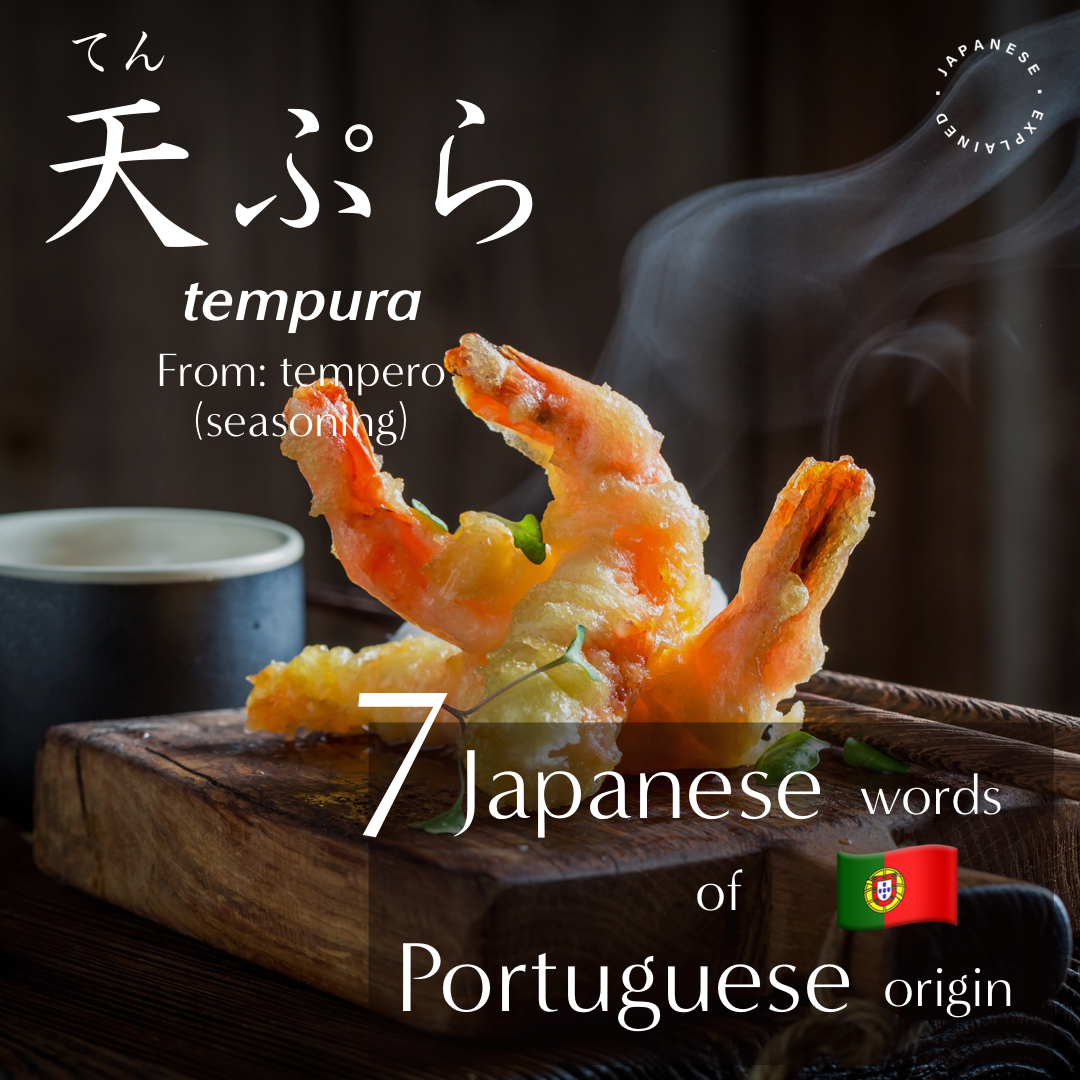
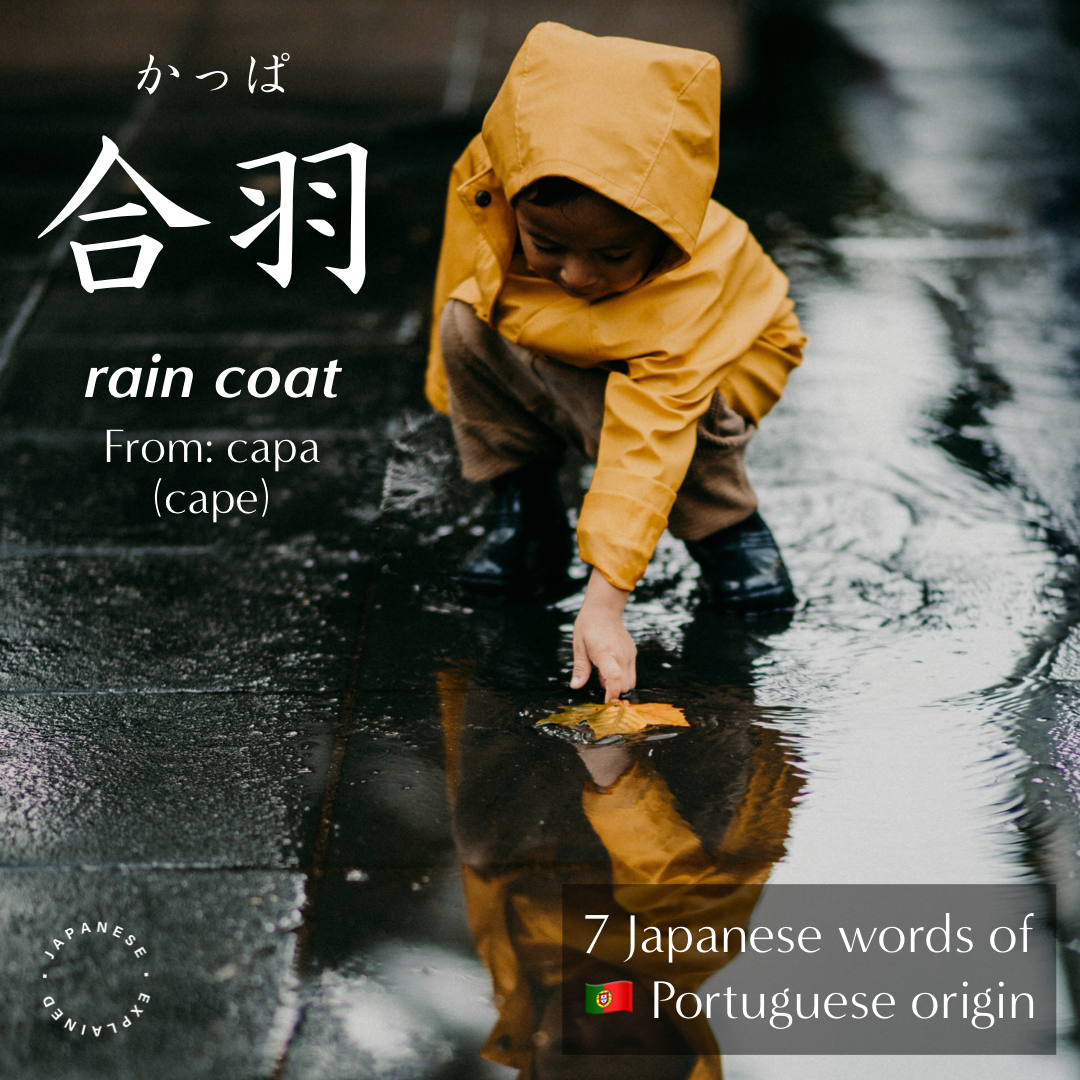
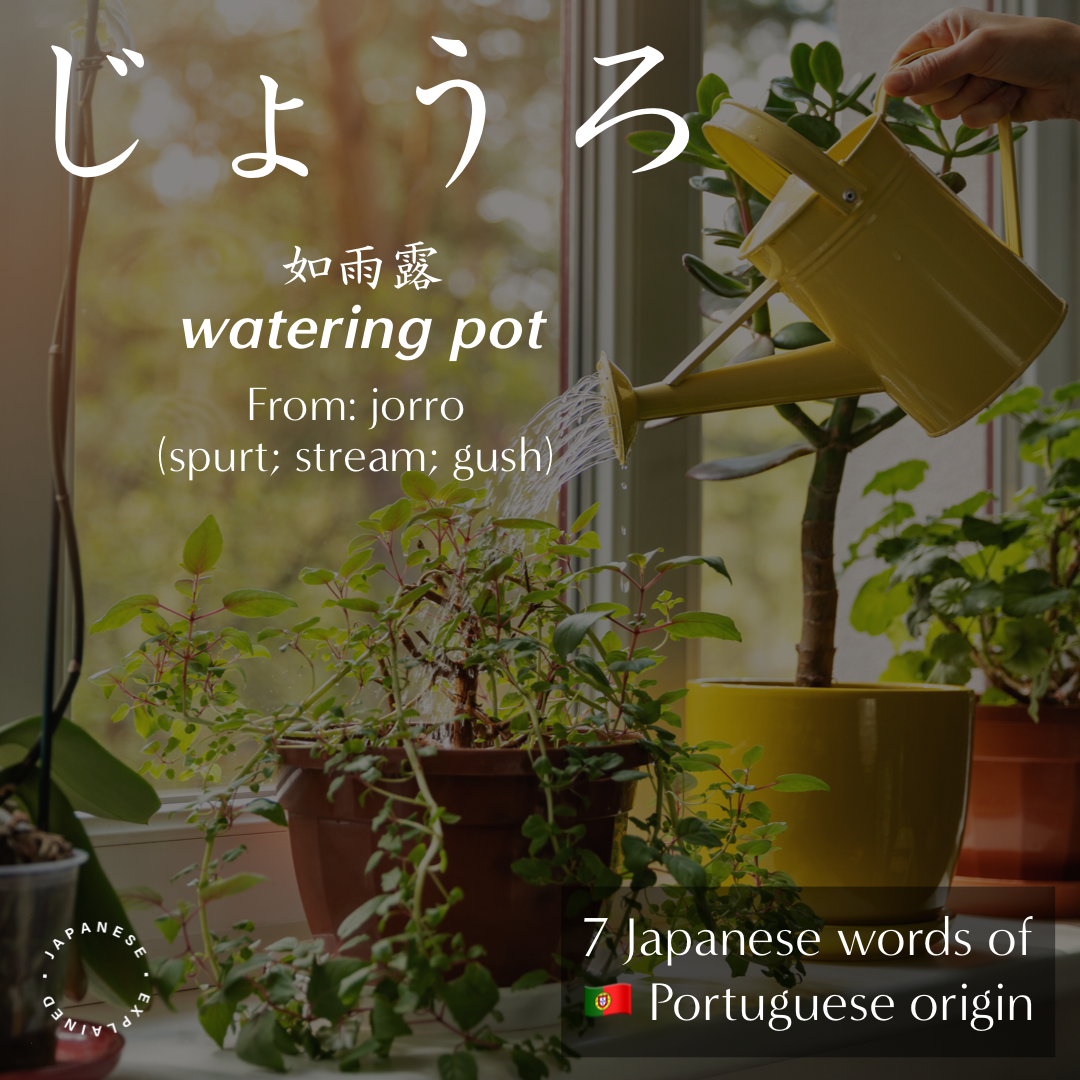
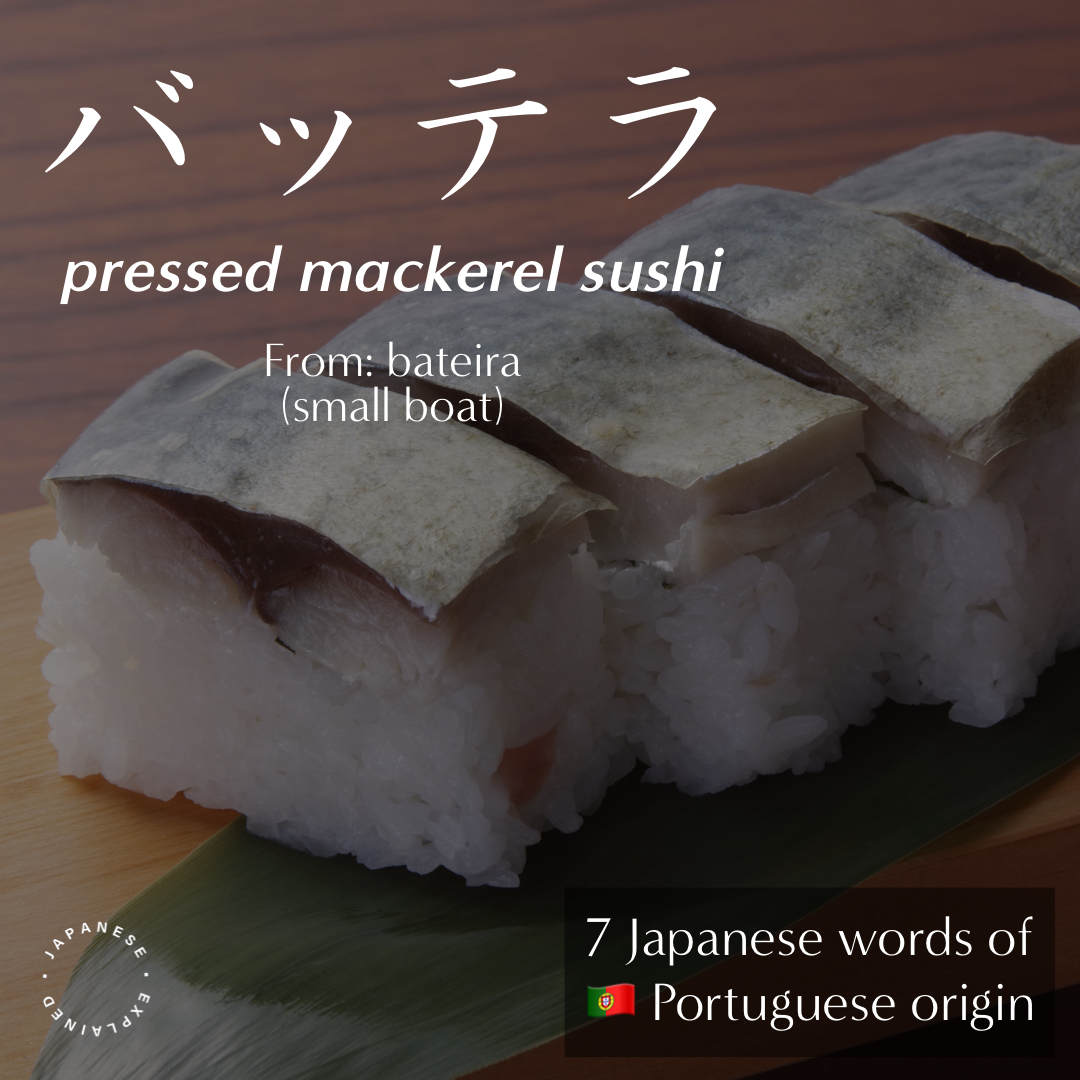
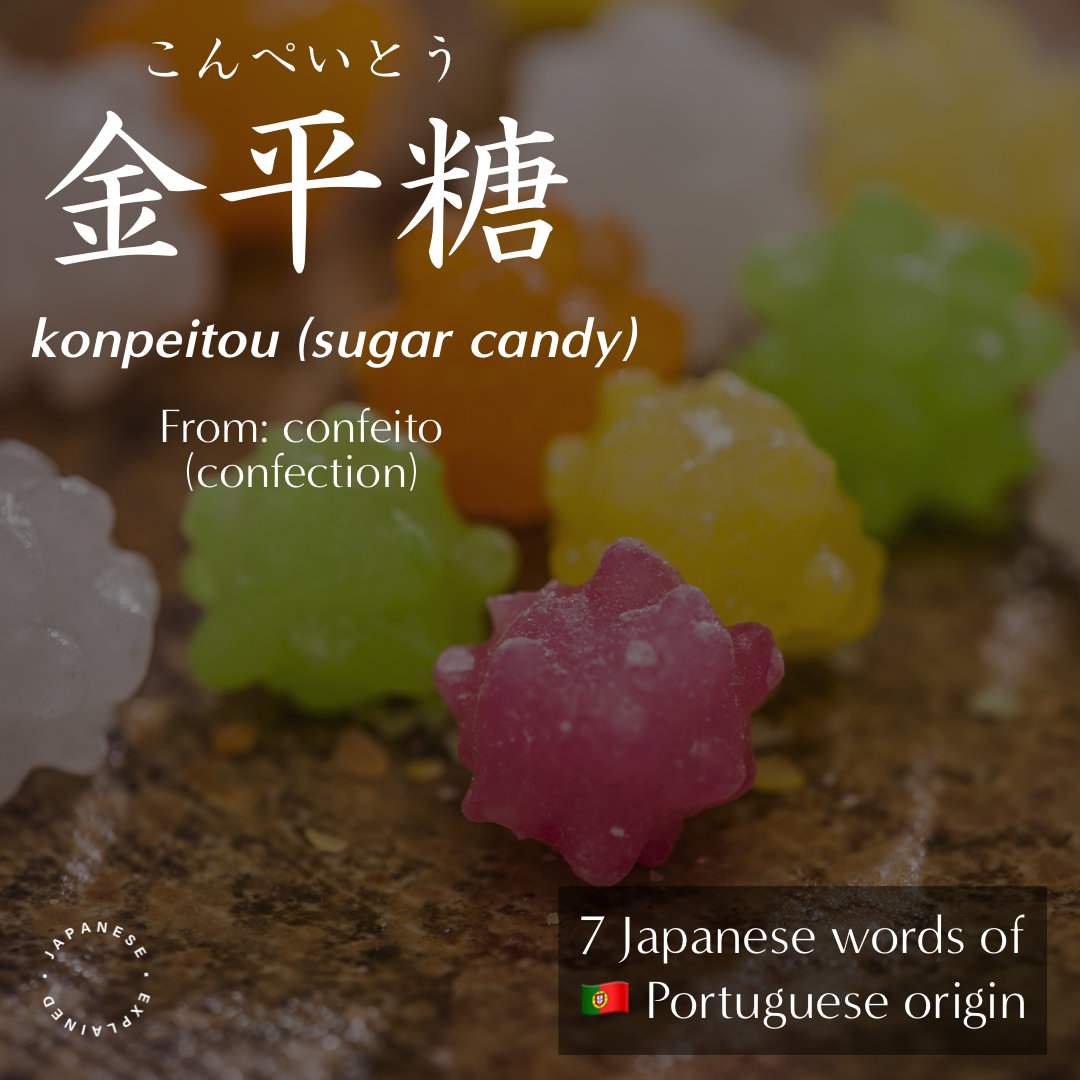
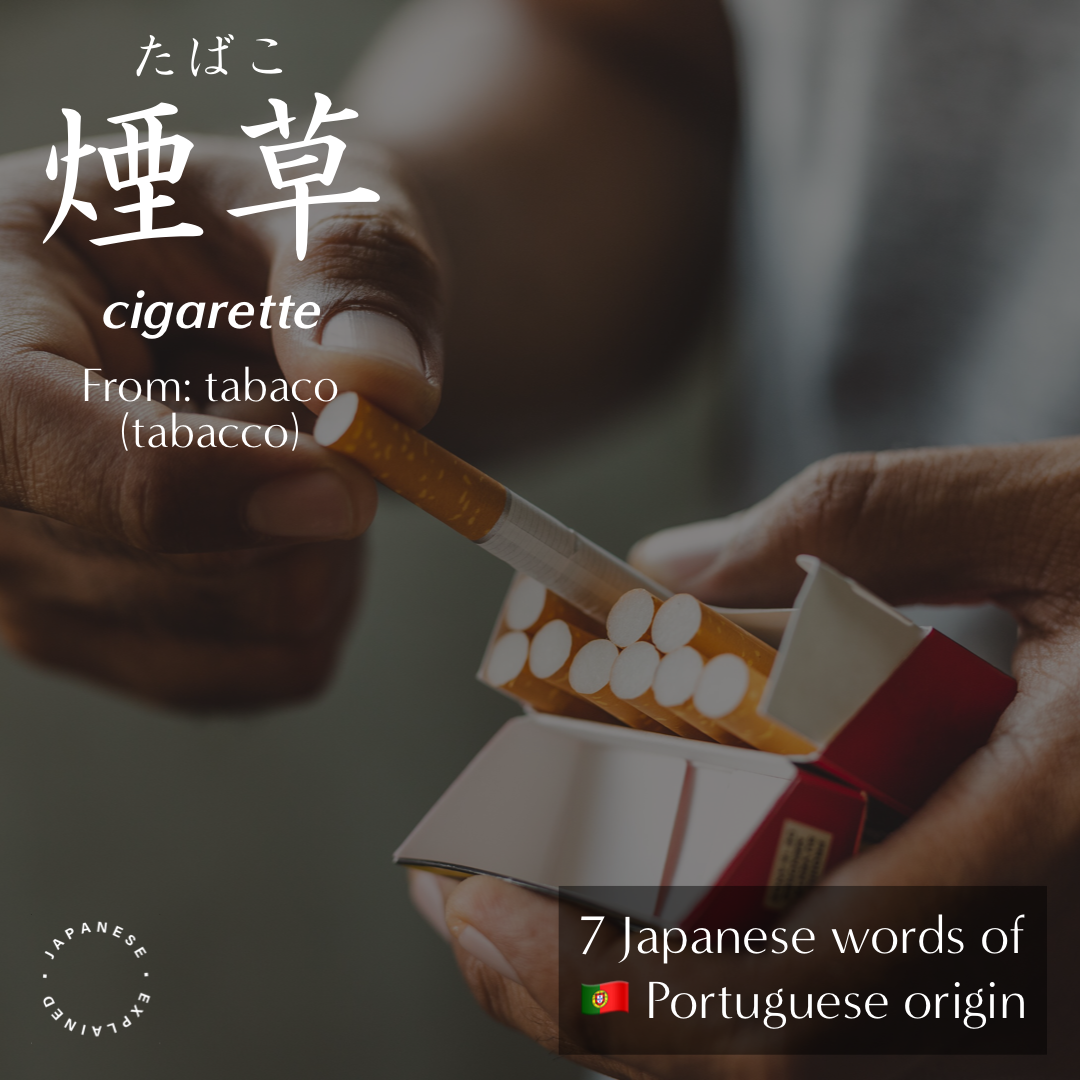
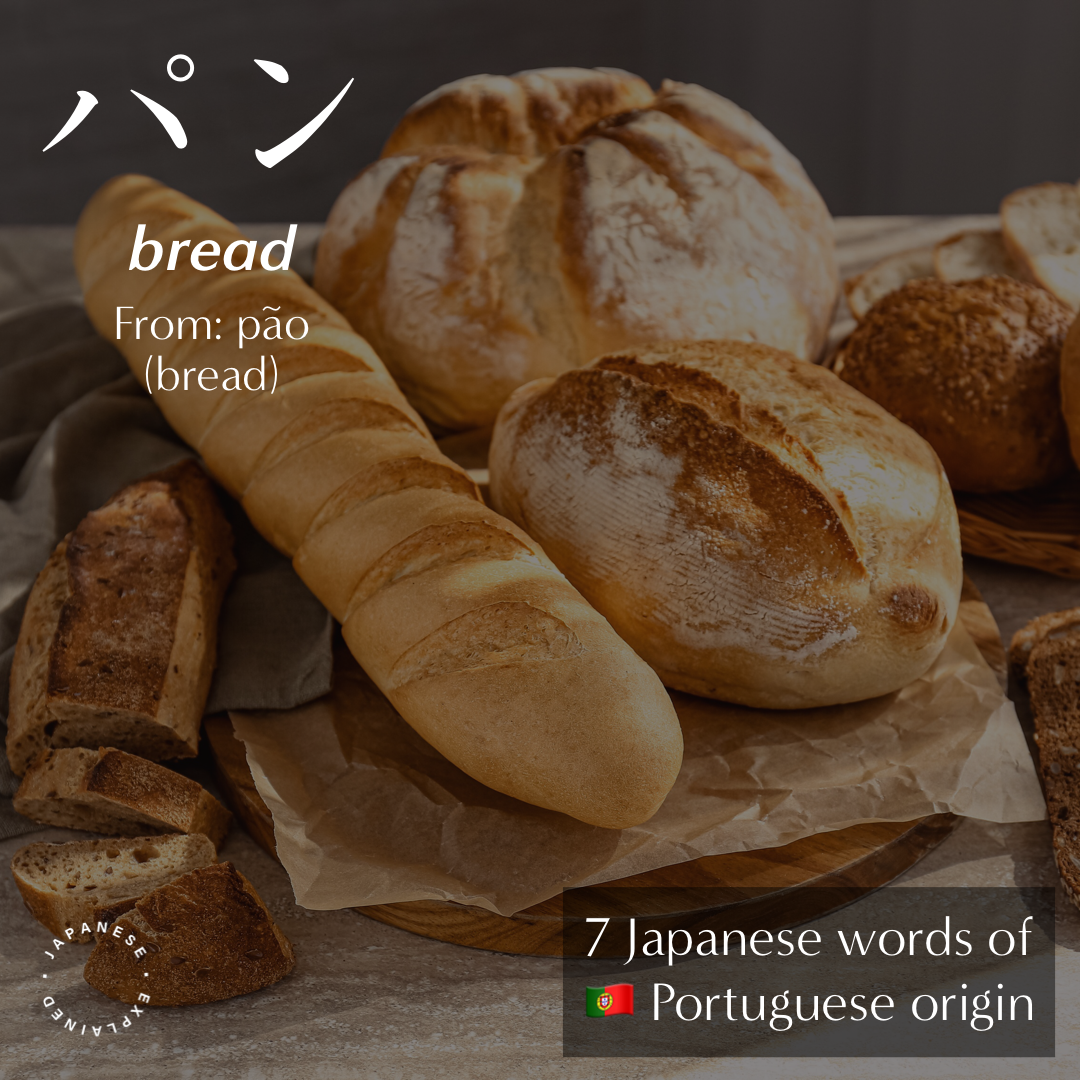
天ぷら tempura From: “tempero” which originally meant “seasoning” in Portuguese.
合羽(かっぱ) raincoat From: “capa” which originally meant “cape” in Portuguese. Today, we usually call thin portable raincoats (the ones you can get in convenience stores) 合羽, and the ones with thicker and durable fabric レインコート. There is also a theory that 合羽 is from the youkai (Japanese goblin) 河童(かっぱ), but this theory is less credible.
じょうろ (如雨露) watering pot From: “jorro” which originally meant “gush; spurt; stream of water” in Portuguese.
バッテラ pressed mackerel sushi From: “bateira” which originally meant “small boat” in Portuguese. It’s said that a sushi chef in Osaka made and named the sushi because it looked like a small wooden boat.
金平糖(コンペイトウ) compeitou From: “confeito” which originally meant “confection” in Portuguese.
煙草(タバコ) cigarette From: tabaco
パン bread From: pão (bread) There are historical documents that bread was brought to Japan by Portuguese in the 16th century along with its name “pão”. Since the pronunciation of パン is closer to the Spanish word “pan”, there are theories that Japanese adapted the word from Spanish who came shortly after Portuguese.
Portuguese “pão”, Spanish “pan”, and French “pain” all come from Latin “panis”.
*Some of the original Portuguese words are not commonly used today, or not used in Brazil.
Also, the word カボチャ(pumpkin) is from the country name “Cambodia”, which was introduced by the Portuguese.
I didn’t include some other words like おんぶ, おてんば, トタン etc which are also said to be from Portuguese because there aren’t enough evidence that they are actually from Portuguese.
